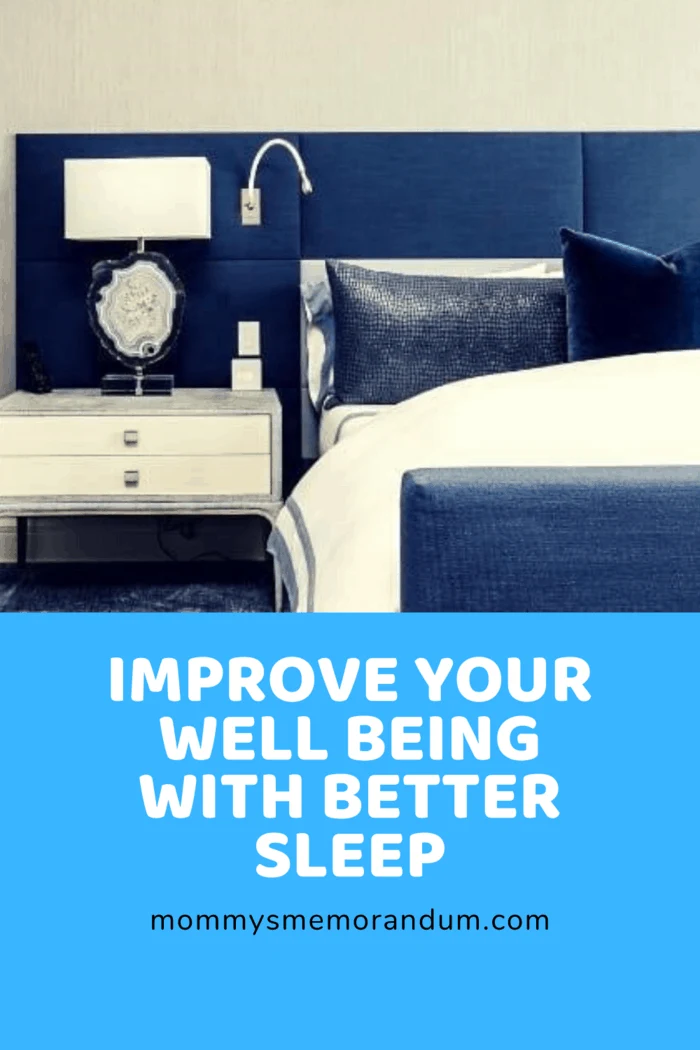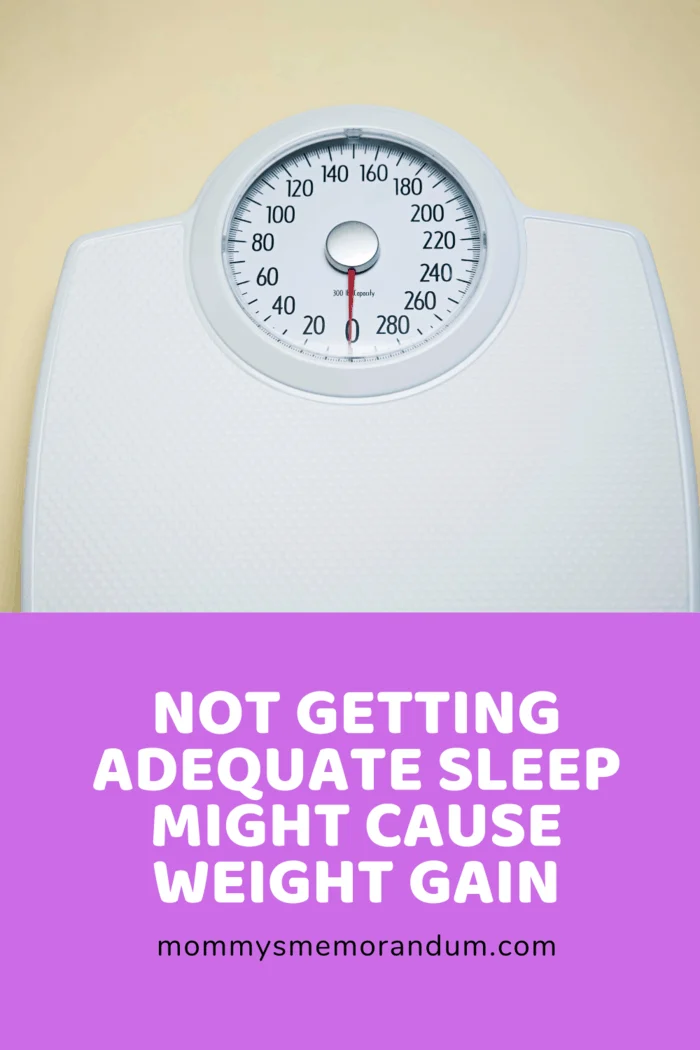Getting a decent night’s sleep is key to functioning our best. From how we handle personal relationships to how we deal with work issues, sleep is critical to our emotional and physical health. Here, we’ll explore the effect of poor rest on our well-being and how greater consideration of our sleep leads to improved well-being.
Getting enough quality sleep is essential for maintaining overall well-being and leading a healthy and fulfilling life. Yet, in today’s fast-paced world, many individuals struggle to prioritize and achieve the restorative sleep their bodies and minds need. The good news is that by focusing on improving your sleep habits and establishing a consistent sleep routine, you can significantly enhance your well-being. From boosting your physical health and cognitive function to enhancing your mood and resilience, the benefits of better sleep extend far beyond just feeling well-rested. In this guide, we will explore practical strategies and tips to help you improve your sleep and ultimately elevate your overall well-being. So, get ready to unlock the transformative power of sleep and embark on a journey toward a healthier, happier you.

Better Sleep to Improve Your Wellbeing
How Poor Sleep Affects Our Mental Health
You’ve probably already noticed that a bad night’s sleep can leave you feeling short-tempered and unprepared for the day ahead. According to the mental health Organization, approximately a third of people suffer from the sleep-related issues, which can raise the risk of developing mental health disorders, such as anxiety and depression. Sleep and emotional well-being are connected. In fact, neurochemistry research by Harvard, indicates that quality sleep improves our mental stability. The opposite is also true, and lack of sleep can cause low moods and emotional insecurity.
Chronic sleep deprivation means our brains cannot cleanse themselves of the toxins that build up during the day, and our bodies aren’t spending enough time in REM (rapid eye movement) sleep. REM is the timeframe that helps learning, memory, and emotional resilience—so getting less-than-adequate REM sleep can leave you unprepared to cope with day-to-day problems that may arise. Similarly, disrupted sleep negatively affects our neurotransmitters and stress hormones, leading to impaired thinking and impacting how we handle emotions.
What’s more, cortisol (a stress hormone) levels can rise with poor sleep. Poor sleep also leads to increased activity in the amygdala (associated with bad emotions, affecting how our brains monitor and control sadness and anger.
Lack of sleep can harm our self-esteem, energy levels, and ability to cope with everyday life.
Poor sleep can have a significant impact on our mental health.
Here are some ways in which inadequate sleep can affect our mental well-being:
- Increased risk of mood disorders: Sleep deprivation can contribute to the development or exacerbation of mood disorders such as depression and anxiety. Lack of sleep disrupts the balance of chemicals in the brain, including serotonin, which plays a crucial role in regulating mood. It can lead to increased irritability, mood swings, and difficulty coping with stress.
- Impaired cognitive function: Sleep is vital for cognitive processes such as attention, concentration, and memory consolidation. Inadequate sleep can impair these functions, leading to difficulties in learning, problem-solving, decision-making, and overall cognitive performance. It can also affect creativity and innovation.
- Heightened stress levels: Poor sleep can increase stress levels. When we are sleep-deprived, our bodies produce higher levels of stress hormones such as cortisol. This can result in a heightened sense of anxiety, irritability, and difficulty managing stressors in daily life.
- Reduced emotional regulation: Sufficient sleep is essential for emotional regulation, the ability to manage and control emotions effectively. When we lack sleep, our emotional regulation processes can be impaired, leading to heightened emotional reactivity, increased sensitivity to negative stimuli, and difficulty managing and expressing emotions appropriately.
- Increased risk of psychiatric disorders: Chronic sleep problems are associated with an increased risk of developing psychiatric disorders such as bipolar disorder, attention deficit hyperactivity disorder (ADHD), and substance use disorders. Sleep disturbances can both contribute to the development of these disorders and worsen their symptoms.
- Impaired social functioning: Sleep deprivation can affect our social interactions and relationships. It can lead to decreased empathy, impaired social perception, and an overall decline in social functioning. Sleep-deprived individuals may have difficulty recognizing and interpreting social cues, which can negatively impact their interpersonal relationships.
- Weakened immune system: Sustained lack of sleep can weaken the immune system, making individuals more susceptible to infections and illnesses. Poor sleep can also prolong recovery time from illness or injury, further impacting mental well-being.
It’s important to prioritize good sleep hygiene and address any underlying sleep disorders to maintain optimal mental health. If you’re experiencing persistent sleep problems and their impact on your mental well-being, it’s advisable to consult with a healthcare professional for proper evaluation and guidance.

How Poor Sleep Harms Us Physically
Not only can poor sleep cause emotional disorders, but it can also harm our physical well-being. According to BUPA, sleep deprivation might elevate the risk of developing high blood pressure and heart disease. Sleeplessness can also lead to diabetes, as it influences insulin regulation, which controls our blood sugar levels. Not getting adequate sleep might cause weight gain—many studies have found a link between poor sleep and piling on the pounds. For example, the lack of rest is suggested to impact the two hunger hormones, leptin, and ghrelin, negatively. These regulate how hungry we feel and are disrupted when we don’t sleep enough, which can cause us to eat more than we need. Another physical impact of poor sleep is a weakened immune system, as not getting enough rest is believed to diminish the body’s ability to fight viruses. Clearly, it’s important to sleep well, and luckily, it’s quite easy to make small changes for a better night’s rest.
Poor sleep can have various negative effects on our physical health.
Here are some ways in which inadequate sleep can harm us physically:
- Weakened immune system: Sleep plays a vital role in supporting the immune system. Lack of quality sleep can weaken the immune system’s ability to fight off infections, making individuals more susceptible to illnesses such as the common cold, flu, and other infections.
- Increased risk of chronic conditions: Chronic sleep deprivation has been linked to an increased risk of developing several chronic health conditions. These include obesity, diabetes, cardiovascular diseases (such as heart disease and hypertension), and metabolic disorders. Inadequate sleep can disrupt metabolic processes, affect insulin sensitivity, and lead to hormonal imbalances, contributing to the development of these conditions.
- Impaired cognitive function: Insufficient sleep negatively impacts cognitive function not only mentally but also physically. It can impair attention, concentration, and reaction times, increasing the risk of accidents and injuries. Sleep deprivation has been associated with an increased likelihood of workplace accidents, car crashes, and other accidents involving impaired physical coordination.
- Weight gain and obesity: Lack of sleep can contribute to weight gain and obesity. Sleep deprivation affects the hormones ghrelin and leptin, which regulate hunger and satiety. When we are sleep-deprived, ghrelin levels increase, stimulating appetite, while leptin levels decrease, reducing feelings of fullness. This hormonal imbalance can lead to overeating, cravings for high-calorie foods, and weight gain over time.
- Increased risk of cardiovascular problems: Inadequate sleep has been associated with an increased risk of cardiovascular problems, including hypertension (high blood pressure), heart disease, and stroke. Poor sleep quality and duration can disrupt the normal functioning of the cardiovascular system, leading to elevated blood pressure, inflammation, and an increased strain on the heart.
- Impaired physical performance: Sleep deprivation can negatively affect physical performance and athletic abilities. It can result in decreased strength, endurance, coordination, and reaction times. Athletes who do not get sufficient restorative sleep may experience reduced athletic performance and an increased risk of injuries.
- Accelerated aging: Chronic sleep deprivation has been linked to accelerated aging at the cellular level. Lack of sleep can affect the body’s ability to repair and regenerate cells, leading to premature aging, increased wrinkles, and a decline in overall skin health.
It’s important to prioritize good sleep habits and ensure you are getting adequate and restful sleep to support your physical health and well-being. If you consistently struggle with sleep-related issues, it is advisable to consult with a healthcare professional for proper evaluation and guidance.

Improving Well-Being with Good Sleep
Keen to enhance how well you sleep and for how long?
Here are a few ways:
Gadgets
Blue light emitted by phones, tablets, and televisions tricks our brains into staying active when it’s time to rest. It does this by decreasing the rate at which our brains emit melatonin, a sleep-enhancing hormone. If you need help falling asleep, avoid using these devices at least an hour before bedtime.
While excessive use of gadgets can contribute to poor sleep quality, when used mindfully, technology can also help improve well-being and promote good sleep.
Here are some ways gadgets can positively impact sleep and overall well-being:
- Sleep tracking devices: Many wearable devices and smartphone apps offer sleep tracking features that monitor your sleep patterns, including duration, quality, and stages of sleep. By gaining insights into your sleep habits, you can identify areas for improvement and make necessary adjustments to your sleep routine.
- Sleep hygiene apps: There are numerous mobile applications available that provide guidance and tools to improve sleep hygiene. These apps offer features like relaxation exercises, soothing sounds, guided meditations, and sleep-promoting techniques to help you wind down and prepare for a restful night’s sleep.
- Blue light filters: Electronic devices emit blue light, which can interfere with the production of melatonin, a hormone that regulates sleep-wake cycles. Many gadgets now come with built-in blue light filters or have settings that allow you to reduce blue light emission during evening hours. Using these filters or wearing blue light-blocking glasses in the evening can help promote better sleep.
- White noise apps: Some people find it helpful to have ambient sounds, such as white noise, playing in the background to mask other disruptive sounds and create a calming sleep environment. White noise apps can generate a variety of soothing sounds that can help you relax and drift off to sleep more easily.
- Sleep meditation apps: Meditation and mindfulness practices can aid in relaxation and promote better sleep. Numerous smartphone apps offer guided meditation sessions specifically designed for sleep, helping you calm your mind, reduce stress, and prepare for a restful sleep.
- Sleep aid podcasts and audiobooks: Listening to sleep aid podcasts or audiobooks can be a helpful way to unwind before bed. Many podcasts and audiobooks feature calming and soothing content, including bedtime stories, relaxation exercises, and gentle music that can facilitate a more peaceful transition into sleep.
It’s worth noting that while gadgets can be useful, it’s important to establish boundaries and practice good sleep habits. Excessive use of gadgets, especially before bed, can have negative effects on sleep quality.
Here are a few tips to optimize gadget use for better sleep:
- Establish a technology curfew: Avoid using gadgets for at least 30 minutes to an hour before bedtime to allow your mind and body to unwind and prepare for sleep.
- Create a sleep-friendly environment: Keep your bedroom dark, quiet, and at a comfortable temperature. Consider using apps or gadgets that help regulate room temperature or create ambient sounds conducive to sleep.
- Prioritize sleep over screen time: Set clear boundaries on gadget use and allocate sufficient time for sleep. Make sleep a priority in your daily routine and ensure you are getting the recommended amount of sleep for your age group.
Remember, gadgets can be helpful tools, but they should not replace healthy sleep habits and a conducive sleep environment.

Sleeping environment
The first step to an ideal sleeping environment is to buy a quality mattress from a reputable retailer. Consider how you sleep (such as on your front, side, or back), and choose the best mattress to accommodate your needs, says Each Night. Choosing a mattress based on your sleep style helps you get comfortable rest and prevents aches and pains. Look around your bedroom. Is there anything in it that may be disrupting your sleep? Consider noise and light distractions, as well as ambient temperature. A bedroom between 60 and 67 degrees Fahrenheit is believed to be the ideal temperature range to help us sleep. Your ability to relax coincides with your quality of rest, which is why an untidy room is likely to keep you awake. If your room doesn’t feel comfortable and organized, it won’t support the best sleep.
Creating a sleep-friendly environment can significantly improve well-being by promoting good sleep.
Here are some ways to optimize your sleeping environment for better sleep and overall well-being:
- Darkness: Ensure your bedroom is as dark as possible. Use blackout curtains or blinds to block out external light sources such as streetlights or early morning sunlight. Darkness signals the body to produce melatonin, a hormone that regulates sleep.
- Noise reduction: Minimize disruptive noises that can disturb your sleep. Consider using earplugs, a white noise machine, or a fan to mask unwanted sounds. Alternatively, you can use soothing sounds like nature sounds or gentle music to help you relax and drown out background noise.
- Comfortable bedding: Invest in a comfortable mattress, pillows, and bedding that suit your personal preferences. Your sleep surface should adequately support your body and help maintain a neutral spine alignment. Choose breathable materials and keep your bedroom at a comfortable temperature to avoid overheating or feeling too cold.
- Declutter and tidy up: A clean and organized bedroom can contribute to a more peaceful and relaxing atmosphere. Remove clutter, keep surfaces clear, and create a soothing space that promotes relaxation.
- Temperature control: Maintain a cool and comfortable temperature in your bedroom. The ideal temperature for sleep varies for each individual, but generally, a slightly cooler environment (around 65-70°F or 18-20°C) is conducive to better sleep. Adjust your bedding and room temperature accordingly.
- Limit electronics: Minimize the presence of electronic devices in your bedroom, especially those that emit bright lights or disruptive sounds. The blue light emitted by screens can interfere with melatonin production and disrupt your sleep-wake cycle. If you need to have gadgets nearby, ensure they are set to “Do Not Disturb” mode or place them face down to avoid distractions.
- Establish a bedtime routine: Create a calming pre-sleep routine that helps signal to your body that it’s time to wind down and prepare for sleep. Engage in relaxing activities such as reading a book, taking a warm bath, practicing gentle stretching or yoga, or listening to soothing music. Consistency and predictability in your routine can train your body to recognize and anticipate sleep.
- Scent and aromatherapy: Consider using relaxing scents in your bedroom, such as lavender or chamomile, to create a soothing ambiance. You can use essential oils, linen sprays, or scented candles (safely) to enhance relaxation and promote better sleep.
Remember, the goal is to create a sleep sanctuary in your bedroom—a dedicated space that promotes restfulness and relaxation. Experiment with different adjustments and find what works best for you in terms of darkness, noise, temperature, and overall ambiance. Prioritizing a sleep-friendly environment can significantly contribute to improved sleep quality and overall well-being.

Food and Drink
Avoid sugar and caffeine around three hours before bed for a good night’s sleep. We also suggest avoiding large meals late at night. Eating too much before bed will trigger your digestive system, which is not conducive to falling asleep.
The food and drink choices we make can have a significant impact on our sleep quality and overall well-being.
Here are some ways in which nutrition can improve sleep:
- Balanced meals: Consuming a balanced diet that includes a variety of nutrient-dense foods can support overall health, including sleep. Aim for a well-rounded mix of whole grains, lean proteins, fruits, vegetables, and healthy fats. This provides essential nutrients that support the body’s natural sleep-wake cycle and promote overall well-being.
- Avoid heavy meals before bed: Eating heavy, large meals close to bedtime can disrupt sleep. Digestion requires energy, and a full stomach can lead to discomfort and indigestion, making it difficult to fall asleep. Try to have your last meal or snack at least a few hours before bedtime.
- Limit caffeine and stimulants: Caffeine is a powerful stimulant that can interfere with sleep. Avoid consuming caffeinated beverages such as coffee, tea, and energy drinks, especially in the evening. Be aware that caffeine can remain in your system for several hours, so it’s best to limit consumption throughout the day.
- Watch alcohol intake: While alcohol can initially make you feel drowsy, it can disrupt the quality of your sleep. It can suppress REM sleep, leading to fragmented and less restorative sleep. Limit alcohol consumption, especially close to bedtime, and be mindful of its effects on your sleep.
- Stay hydrated: Proper hydration is important for overall health and can also support good sleep. However, avoid excessive fluid intake close to bedtime to minimize the need for frequent trips to the bathroom during the night. Strike a balance by staying adequately hydrated throughout the day.
- Incorporate sleep-promoting foods: Some foods contain natural compounds that can support sleep. For example, foods rich in tryptophan (such as turkey, dairy products, nuts, and seeds) can help promote the production of serotonin, a neurotransmitter involved in sleep regulation. Additionally, certain herbs like chamomile and foods rich in magnesium (such as leafy greens, legumes, and whole grains) may have calming properties that aid in relaxation and sleep.
- Be mindful of personal triggers: Certain individuals may have specific food sensitivities or intolerances that can disrupt sleep. Pay attention to how certain foods or ingredients affect your sleep quality. For example, some people may find that spicy or acidic foods, high-sugar foods, or processed foods negatively impact their sleep. Identify your personal triggers and make adjustments accordingly.
- Consistent meal and snack times: Establishing regular eating patterns and avoiding large gaps between meals can help maintain stable blood sugar levels and support overall energy balance. This can contribute to a more balanced sleep-wake cycle.
It’s important to note that individual responses to food and drink can vary. Experimentation and self-awareness are key to identifying the specific dietary factors that affect your sleep. If you have persistent sleep issues or dietary concerns, consult with a healthcare professional or a registered dietitian for personalized advice.

Sleep Routine
Make a sleep journal and record how well and for how long you sleep each night; this will help you determine what events might be causing you difficulty falling asleep.
Having a consistent sleep routine can greatly improve well-being and promote good sleep.
Here’s how a sleep routine can positively impact your sleep and overall well-being:
- Regulates sleep-wake cycle: Following a consistent sleep routine helps regulate your body’s internal clock, also known as the circadian rhythm. Going to bed and waking up at the same time every day, even on weekends, helps synchronize your sleep-wake cycle, making it easier to fall asleep and wake up naturally.
- Enhances sleep quality: A regular sleep routine allows your body to anticipate sleep and prepare for it. When you follow a consistent schedule, your body becomes accustomed to the rhythm, and you’re more likely to experience deeper and more restorative sleep.
- Improves sleep onset: Engaging in a pre-sleep routine signals to your body that it’s time to wind down and prepare for sleep. Activities such as reading a book, taking a warm bath, practicing relaxation techniques, or listening to soothing music can help transition your mind and body into a state of relaxation, making it easier to fall asleep.
- Reduces sleep disturbances: By establishing a sleep routine, you can minimize potential disruptions that can interfere with sleep. This includes avoiding stimulating activities or electronic devices close to bedtime, which can negatively impact sleep quality.
- Enhances daytime functioning: Consistent and adequate sleep improves daytime alertness, concentration, and cognitive function. When you follow a sleep routine that allows you to get sufficient sleep, you’re more likely to feel refreshed, energized, and mentally sharp throughout the day.
- Supports overall well-being: Sleep is essential for overall physical and mental well-being. A consistent sleep routine promotes better physical health, immune function, mood regulation, and stress management. It helps maintain a healthy balance in hormone levels and supports various bodily functions necessary for optimal health.
- Establishes healthy habits: Following a sleep routine can help you establish and maintain other healthy habits. It reinforces the importance of prioritizing sleep and self-care, which can have a positive ripple effect on other areas of your life, such as nutrition, exercise, and stress management.
When establishing a sleep routine, consider the following tips:
- Determine your ideal sleep duration: Understand how much sleep you need to feel rested and aim for that amount consistently.
- Set a regular bedtime and wake-up time: Try to go to bed and wake up at the same time every day, even on weekends.
- Create a pre-sleep routine: Engage in relaxing activities before bed to signal to your body that it’s time to wind down. This can include reading, practicing relaxation techniques, or taking a warm bath.
- Create a sleep-friendly environment: Optimize your bedroom for sleep by keeping it dark, quiet, and at a comfortable temperature.
- Limit stimulants and electronic devices: Avoid consuming caffeine or engaging in stimulating activities close to bedtime. Minimize exposure to electronic devices that emit blue light, as it can interfere with sleep.
- Be consistent: Stick to your sleep routine as much as possible to help regulate your body’s sleep-wake cycle effectively.
By prioritizing and maintaining a sleep routine, you can improve your sleep quality, overall well-being, and various aspects of your life. Consistency in your sleep schedule and engaging in pre-sleep rituals help regulate your internal clock, promote restful sleep, and enhance daytime functioning. It supports physical health, mental clarity, mood stability, and the ability to manage stress effectively. Additionally, a sleep routine can serve as a foundation for establishing other healthy habits, creating a positive cycle of well-being in your life. Remember, creating and maintaining a sleep routine requires commitment and discipline, but the long-term benefits for your health and well-being are worth the effort.

Final Thoughts
Get into a ‘sleep ritual’ whereby you have a bath, read a book, listen to calming music, do Pilates, or carry out another sleep-enhancing activity that prepares your brain for slumber. Sleep’s importance in our health may seem obvious, but it is easily neglected. Be sure to give a good night’s sleep the consideration it deserves, and don’t let yourself compromise time spent snoozing.
Prioritizing good sleep and establishing healthy sleep habits is crucial for overall well-being. Poor sleep can have detrimental effects on both mental and physical health, while a restful and consistent sleep routine can promote numerous benefits. It’s important to create a sleep-friendly environment, practice good sleep hygiene, and be mindful of factors such as nutrition, exercise, and stress management that can impact sleep quality. By making sleep a priority and maintaining a regular sleep routine, you can enhance your sleep, improve your overall health, and enjoy the benefits of a well-rested mind and body. If you continue to experience persistent sleep issues, it’s advisable to consult with a healthcare professional for personalized guidance and support.
